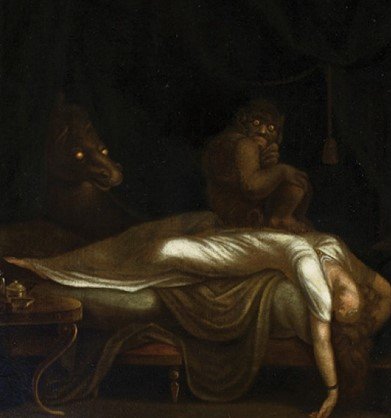“Ghazal for the Nightmare of History,” Three Poems, Benjamin Balthaser.
Ghazal for the Nightmare of History
for P.L.
You come downstairs to share
your burden: our bodies
wedged uncomfortably in chairs: these
pages in Russian: ghosts embodied
without addresses or eyes. The
hours are against you, your body
and its weight of flesh & voice: we
read: women herded into vans, body
parts broken open, a rib-cage
shattered by metal bars: bodies
upon bodies charred into fibula, spine,
and voice-box: into a mash of bodies
no longer human: into shapes
neither dark nor light: there are no anti-bodies
for the name that streaks like blue flame in these
KGB files: your grandfather, on whose body
fitted the black and red Nazi uniform: can guilt
descend through generations? The bodies
of Eucalyptus press at the cement
and do not enter. They lift, bodiless,
without arms or ears, just blue seeds
that drift on wind, without the body
of memory that haunts you: you want
to evoke our friendship: my body
to provide an alibi: the crimes are listed:
they do not belong to you: just somebody
who bears your name, your pale, sandy hair, your
blue eyes that reflect, so perfectly: my body.
For Admiral Peary: Arctic Explorer
It’s hard not to believe in you. The dry
snow of confetti covers New York
as you parade Madison Avenue, Times
Square, having reinvented the country
with a pair of faulty coordinates: our shores
of melting snow can now be forgotten -
polite girls or maps made of paper.
In return, we made you a kind of saint:
living alone on your island, facing
the hard coast of Maine in an office
crested with battlements and cut stone,
a compass in the tile tracking due north,
your thick Siberian mustache along with
leather bound books never opened or read.
I’d like to say we love your imagination:
on an island bristled with summer blueberries,
you dreamed of a shifting point in the snow.
That to make yourself someone you stopped
building canals and went to the heart of
the wasteland. Your one friend Henderson
died of bad crabmeat on the way back from Alaska
and when you returned, black ghosts and doubles
followed you everywhere, collecting confetti in
their pockets, as you learned taxidermy on pigeons sick
with the city’s poison. But we spared ourselves
the last act. As the Dutchman stood at the world’s
center two years before you, you planted a flag
on the ice-cap and marched home, you will
to walk on sheer pain, feet frozen to numb stumps
mattered more in the long run. In Manhattan today,
each gutter glistens like a horizon, every
window seems a frontier that you could build
a life striving towards. What you asked for was not much:
perfection, a pair of numbers on paper, a sheet of salt-ice
a hand could harden into shape, a name etched
on a surface harder than a tombstone. I’d like to say
you died found out, stripped of your admiralty
or at least forgotten, but America loves your fraud.
Postage stamps fly to other countries with your lean
New Englander’s face, and young men die,
their bodies the color of uniforms.
Meteor Shower, November 18, 2001, not in Afghanistan
Like a shadow falling into a second
and deeper shadow, light falling into
darkness, we try and imagine space,
wear fugitive blankets around our shoulders,
sit silent as refugees. There is frost in dry sand.
A spasm of branches in late November wind,
a dark green wood that glistens like a wound.
The meteors make no sound; they glide
like rockets, their trails bend like the backs
of dancers, unreal, untouchable, and we
can’t say why they don’t reach the earth,
why they glisten and die out so comfortably
above us, or why here, in along the banks
of the Connecticut River, it’s hard to believe
this stark invasion of ash, ice, and wind.
BIO: Benjamin Balthaser’s poetry has appeared or is forthcoming in journals such Massachusetts Review, Boston Review, Minnesota Review, Laurel Review, the anthology What Saves Us, and elsewhere. His 2012 collection of poems from Partisan Press, Dedication, details the lives of blacklisted Jewish activists during the McCarthy era, and his 2016 book from University of Michigan Press, Anti-Imperialist Modernism, explores connections between cross-border, anti-imperialist movements and the making of modernist culture at mid-century. He is currently associate professor of multi-ethnic literature at Indiana University South Bend and lives in Chicago.
Artwork: Henry Fuseli, The Nightmare (1781).
